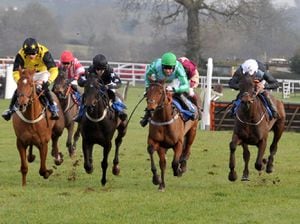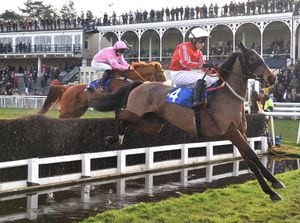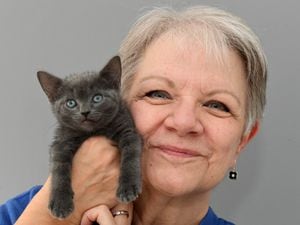Equine flu: The stable door shuts before the horse bolts
As horse racing is suspended across the country due to equine flu, we speak to animal experts about the significance of the ban.

If the shutting down of racecourses amid an outbreak of horse flu seems like an extreme reaction, Jim Tipp thinks otherwise.
“It can be quite serious, especially for a race horse, which might take six months to fully recover and return to racing,” says the chief vet at Uttoxeter and Aintree racecourses, who is also chairman of Fyrnwy Equine Clinic at Baschurch in Shropshire.
“The reason the British Horse Racing Authority requires all horses to be vaccinated is that a flu outbreak will stop horse racing. It will just stop.”

The early precautions being taken over the last couple of days will incubate the industry as a whole against equine influenza.
There have been multiple outbreaks of horse flu in the UK and Europe in recent weeks, affecting both vaccinated and unvaccinated horses alike.
This week, all meetings at British racecourses were cancelled after the Animal Health Trust confirmed three positive tests from vaccinated horses at an active racing yard – later revealed to be Donald McCain’s yard at Cholmondley in Cheshire.
That action was taken after horses from the yard had already run at Ludlow on Wednesday, and as part of the shutdown racing at Wolverhampton, scheduled for tomorrow, was cancelled on Thursday morning.
Mr Tipp believes that the cancellation of racing shows haw seriously equine flu is being taken by the authorities.
“It is pretty significant. I have been in practice for over 30 years and I don’t remember racing being cancelled,” he says.

“I am hoping this is a wise precautionary measure and reading between the lines I think as long as the BHA gets compliance from the affected yards that the horses won't be going anywhere then I think racing will be able to continue for other horses.”
In a statement, Arena Racing Company which operates Wolverhampton Racecourse said the decision to call off Saturday’s meeting was made in the light of a request to deep-clean equine areas of the course in light of the outbreak elsewhere.
It said: “It was not a request specific to Wolverhampton. After every race meeting it is a requirement to to do deep cleaning of the equine areas.
“With a normal fixture list, there is enough time to do this and get it dry afterwards.
“However, at the moment, with racing due on Saturday, there just isn’t the time to get the work done and dried in time.”
Highly infectious
Equine flu is a highly infectious disease which affects horses, mules and donkeys.
At present, the extent of the spread is not known. There have been no confirmed cases as yet in the West Midlands.
In 2007 there was an outbreak of equine flu in New South Wales in Australia. Huge quarantine zones were declared and horse racing was suspended, with the cancellation of a three-day Olympics qualifying event.
New South Wales wasn’t declared clear of the flu until February 2008.
Dr Malgorzata Behnke is a senior lecturer in animal and veterinary sciences at Harper Adams University. She says horse owners will be on “high alert”.
“Equine influenza is a virus that affects the respiratory system and is very specific to horses. It is a virus that tends to spread in the air and between horses that are sharing air space. It can also survive on a surface such as a bucket, brush or coat for a few hours,” she says.
“It is incredibly contagious and passes very quickly between horses that are near each other. Put simply one horse can breathe it out and another one can breathe it in, they don’t have to touch each other, they just have to be in the same air space.”

As well as being air born the British Horseracing Authority (BHA) says the virus can be transmitted indirectly, including via people, although stressed there are no known consequences for humans associated with exposure to the disease.
Yards potentially exposed have been urged to ensure appropriate quarantine and biosecurity measures are in place and horse movements restricted to avoid possible further spread of the disease.
“The symptoms are very similar to what we would associate with flu,” says Dr Behnke.
“The signs will probably start with what we call poor performance syndrome – a horse might be off its food, and then there might be the development of a fever, nasal discharge and coughing. As with any flu it puts them at risk of contracting a secondary bacterial infection if they are unlucky.
“It takes about three days or so for a horse to start to display symptoms of influenza, so if a horse has shared air space with an infected horse it can take a bit of time to work out if they themselves are now infected.
“Horses are shedding, or passing on, the virus while they are displaying symptoms, and that goes right up until they are clear. That is why you need to keep any infected horses away from those that are healthy.
“They stop being contagious once they have recovered, and like with most other species the influenza plays itself out in about three weeks although seriously affected horses may take longer to recover or be left with permanent damage to their lungs.”





